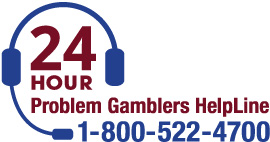Problem Gambling Support Groups
- The Gambling Disorder Help-line, facilitated by HMSA, is strictly confidential. Counselors provide immediate help to address issues related to gambling disorder, including screening services and referrals to treatment or support groups. Counseling services are available to individuals and families affected by Gambling Disorder.
- GamCare is the leading national provider of free information, advice and support for anyone affected by problem gambling. Our expert services are confidential.
- Funded by the New York State Office of Addiction Services and Supports, the New York State Problem Gambling Resource Centers (PGRCs) are programs of the New York Council on Problem Gambling. The goal of the PGRCs is to address problem gambling across New York State by: increasing public awareness about problem gambling.
About 2 million Americans have a serious gambling addiction. Gambling is the act of wagering on the outcome of an event. The thrill of risk-taking sometimes becomes an addiction. Like all addictions, it takes a toll on the addict’s family. An addicted gambler often consistently places his need to wager above the needs and wants of his loved ones. There are several ways for concerned family members to help a gambling addict get treatment.
About Compulsive Gambling
Gambling Addiction & Recovery Support Group. Compulsive gambling is an urge or addiction to gamble despite harmful negative consequences or a desire to stop. A preferred term among many professionals is problem gambling, as few people described by the term experience true compulsions in the clinical sense of the word. Identify signs of the problem. The first step is to look for many signs that come with compulsive.
Compulsive gambling, also called problem gambling or a gambling addiction, is a form of mental illness. It is an impulse control disorder. Gambling addicts cannot control the urge to gamble whenever the opportunity presents itself, despite knowing the negative impact gambling has on their lives. Gambling addictions can lead to debt, divorce, alienation from family and friends, job loss, depression and suicide. The Minnesota Department of Human Services reports that about 2 million Americans are pathological gamblers.
Steps for Families
It is a natural reaction to feel responsible for helping a loved one with an addiction. The first step is to realize that the addict is ultimately responsible for his problem, and he is the only one who can decide to break the addiction. You can help by learning about the addiction and its treatments. Consider joining a peer support group or seeing a therapist to help deal with the conflicting feelings that addict’s family members often face.
You must also set a strategy for handling money and dealing with the addict’s requests for money. This may include taking control over the family finances. A counselor may be able to help you make these difficult decisions.
Resources for Families
Problem Gambling Support Groups List
Gam-Anon is a free peer support organization for the families and loved ones of gambling addicts. Gam-Anon works as a support group by bringing together people affected by a gambling addict so they can share experiences and encouragement. Call the Arizona Helpline 1-800-777-7207, www.azccg.org/Arizona_GA___GAM-ANON.html


Gambling Support Groups
Support for Addicts
In informal support groups, people with addictions meet to talk about their problem, share success stories and support one another. Gamblers Anonymous is a 12-step program modeled after the one used by Alcoholics Anonymous. The organization’s website includes a page of 20 questions that help a person determine whether they have a gambling problem.
Problem Gambling Support Groups Examples
Resources:
Arizona Office of Problem Gambling, 1-800-NEXT STEP
(1-800-639-8783), https://problemgambling.az.gov/
Gamblers Anonymous — http://www.gaphoenix.org/
ACT Counseling & Education, 602-569-4328, www.actcounseling.com